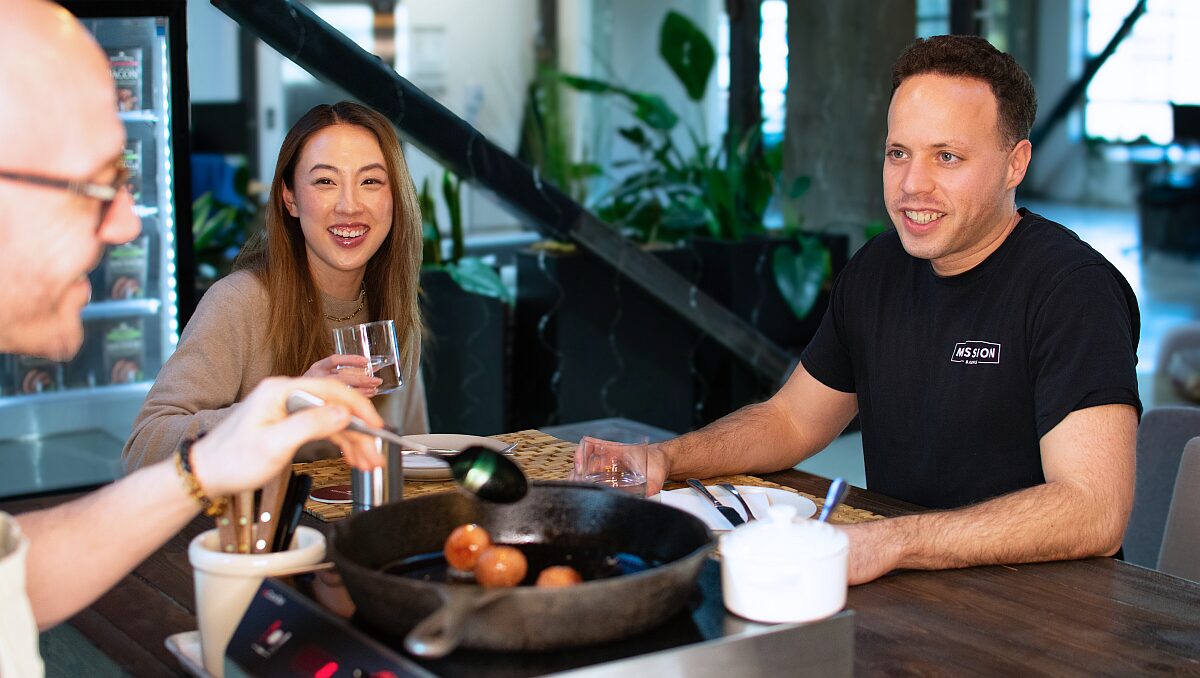Mission Barns Secures Regulatory Approval for Cultivated Pork Fat
Mission Barns, an innovative startup specializing in the production of animal fat through proprietary bioreactors, has recently achieved a significant milestone by obtaining the final inspections from the USDA. This approval includes a grant for its production facility and label sign-off for its cultivated pork fat, following earlier clearance from the FDA this year.
Introducing Cultivated Pork Fat in San Francisco
The cultivated fat is set to feature prominently in meatballs and bacon offered by the San Francisco-based restaurant group, Fiorella, as well as in meatballs at a Sprouts Farmers Market location in the Bay Area during the third quarter of this year. Cecilia Chang, the company’s Chief Business Officer, stated, “Our mission has always been to solve the biggest barrier to alternative proteins: taste. Cultivated fat is the key.”
The product packaging will indicate: “Cultivated meatballs. Contains real pork without the pig, cultivated pork & plant protein.”
First of Its Kind
Mission Barns is pioneering a path as the first company to receive regulatory approval for cell-cultivated animal fat and the fourth overall to obtain full U.S. regulatory sanction to sell cultivated animal cells for human consumption. Previous companies include UPSIDE Foods, GOOD Meat, and Wild Type.
With U.S. regulatory approval secured, Mission Barns is seeking partnerships with companies in consumer packaged goods (CPG), ingredients, and meat sectors to trial products across multiple settings to gauge consumer interest. The startup operates a pilot facility located in the San Francisco Bay Area.
Production Strategy and Licensing
In terms of larger-scale production, Mission Barns plans to license its bioreactor technology to third parties instead of establishing its own expansive production facilities. Chang emphasized that their techno-economic analysis indicates they can remain competitive with conventional pork fat at a scale of 20,000 liters.
“The capital expense (capex) can vary depending on whether a partner is establishing new infrastructure or integrating a bioreactor into an existing facility,” Chang elaborated. “We’ve talked to potential partners and found that using existing infrastructure significantly reduces costs, which is why we are aiming to collaborate with institutions that have underutilized capacity.”
Market Potential for Cultivated Fat
The question arises: Is there a real market for cultivated animal fat? While some alternative meat brands might hesitate to incorporate animal fat—even if derived from a bioreactor—many companies that Mission Barns is engaging with see an opportunity to craft new products catering to consumers dissatisfied with current plant-based offerings and unwilling to sacrifice taste.
Chang noted that, from a commercial view, fat can grow faster than muscle, requires lower input costs, and even minimal amounts can significantly enhance the sensory profile of food products.
Initially focusing on the U.S. market, Mission Barns has also submitted regulatory applications in Singapore and aims to sell products in Hong Kong. Chang highlighted that their Non-GMO process is particularly appealing to potential partners in both Asia and Europe.

Funding Landscape
Despite a sharp decline in funding for agrifood tech since early 2022—especially in cultivated meat—Mission Barns has managed to raise over $60 million since its founding in 2018 and is currently in search of additional funding. Chang expressed, “There’s no denying that the perception surrounding cultivated meat and alternative proteins has shifted, leading to increased scrutiny regarding both economic and technical feasibility.”
“However, our business-to-business strategy allows for a more capital-efficient approach, combined with a product strategy that emphasizes feasible unit economics. From the beginning, we’ve remained realistic; we never aimed to create a fully cultivated steak, for instance.”
“Additionally, the recent approvals of our product and Wild Type’s cultivated salmon this year are encouraging signs for the industry,” she added.
Further Reading:
- Mission Barns unveils ‘novel, scalable, adherent’ bioreactor for cultivated meat, fat
- Clever Carnivore’s pragmatic path to cultivated meat profitability, starting with $0.07/liter media
- The death of cultivated meat has been greatly exaggerated, says report as Vow predicts it will soon be ‘unit margin positive’



